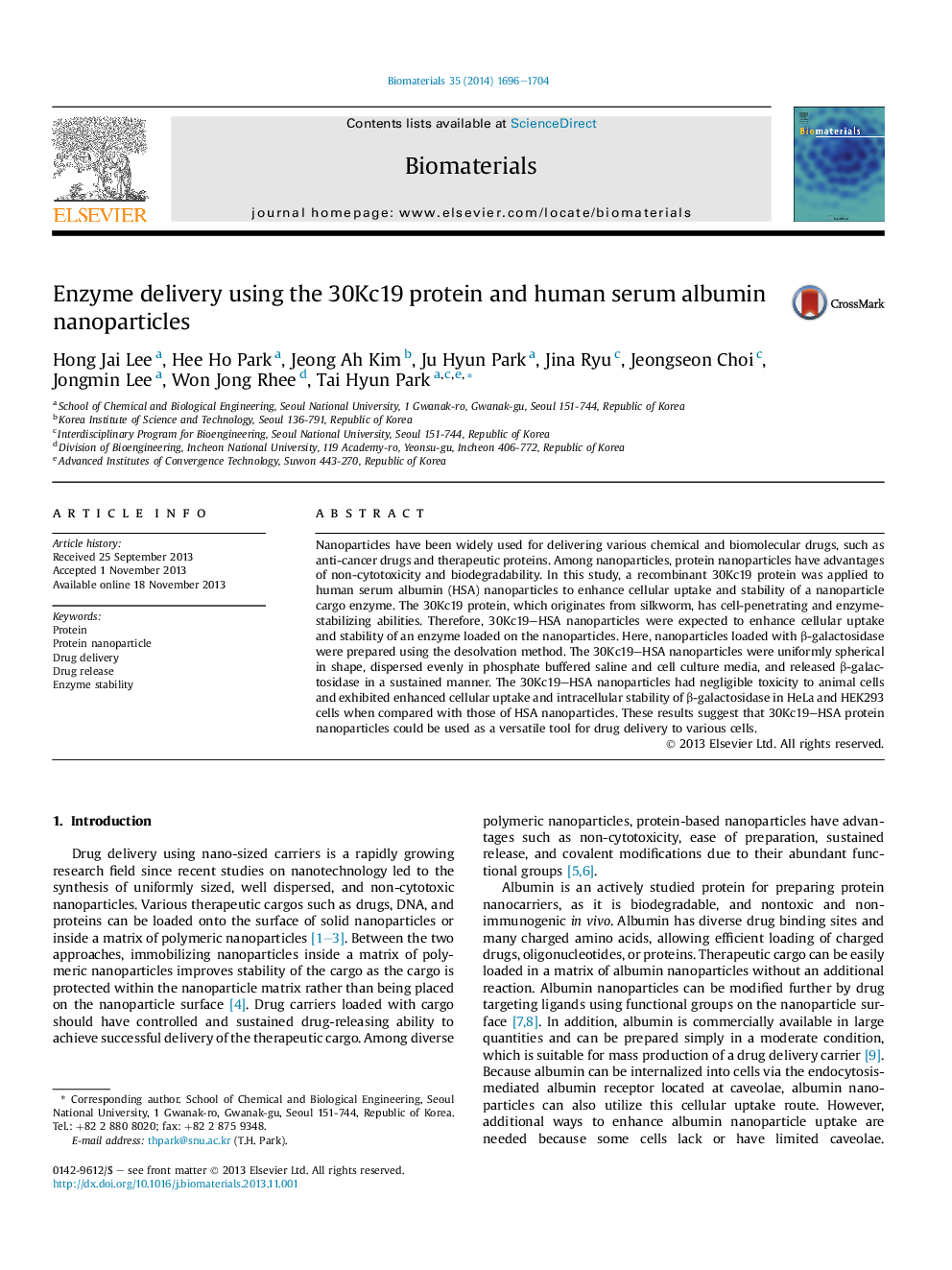| Article ID | Journal | Published Year | Pages | File Type |
|---|---|---|---|---|
| 10227474 | Biomaterials | 2014 | 9 Pages |
Abstract
Nanoparticles have been widely used for delivering various chemical and biomolecular drugs, such as anti-cancer drugs and therapeutic proteins. Among nanoparticles, protein nanoparticles have advantages of non-cytotoxicity and biodegradability. In this study, a recombinant 30Kc19 protein was applied to human serum albumin (HSA) nanoparticles to enhance cellular uptake and stability of a nanoparticle cargo enzyme. The 30Kc19 protein, which originates from silkworm, has cell-penetrating and enzyme-stabilizing abilities. Therefore, 30Kc19-HSA nanoparticles were expected to enhance cellular uptake and stability of an enzyme loaded on the nanoparticles. Here, nanoparticles loaded with β-galactosidase were prepared using the desolvation method. The 30Kc19-HSA nanoparticles were uniformly spherical in shape, dispersed evenly in phosphate buffered saline and cell culture media, and released β-galactosidase in a sustained manner. The 30Kc19-HSA nanoparticles had negligible toxicity to animal cells and exhibited enhanced cellular uptake and intracellular stability of β-galactosidase in HeLa and HEK293 cells when compared with those of HSA nanoparticles. These results suggest that 30Kc19-HSA protein nanoparticles could be used as a versatile tool for drug delivery to various cells.
Related Topics
Physical Sciences and Engineering
Chemical Engineering
Bioengineering
Authors
Hong Jai Lee, Hee Ho Park, Jeong Ah Kim, Ju Hyun Park, Jina Ryu, Jeongseon Choi, Jongmin Lee, Won Jong Rhee, Tai Hyun Park,
